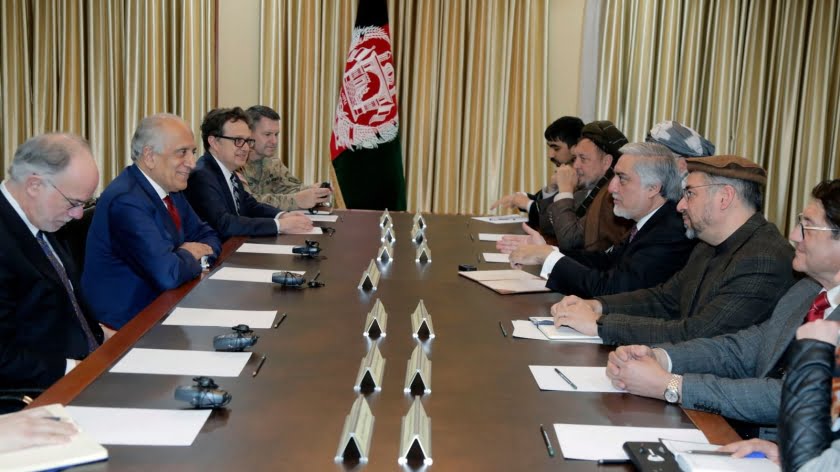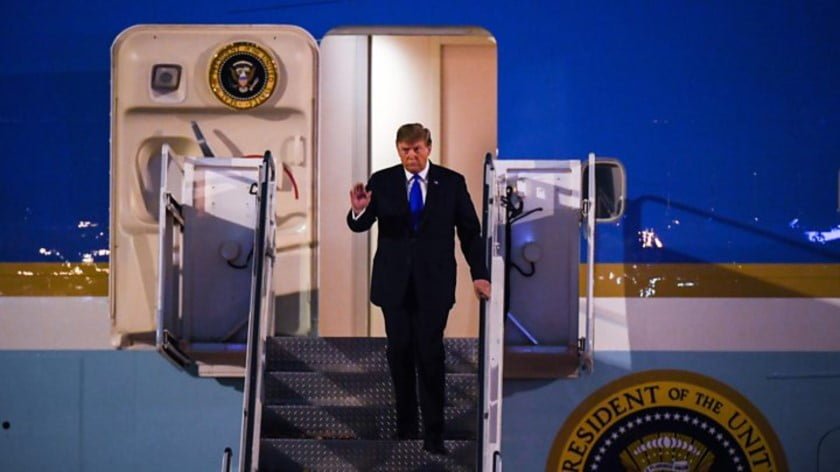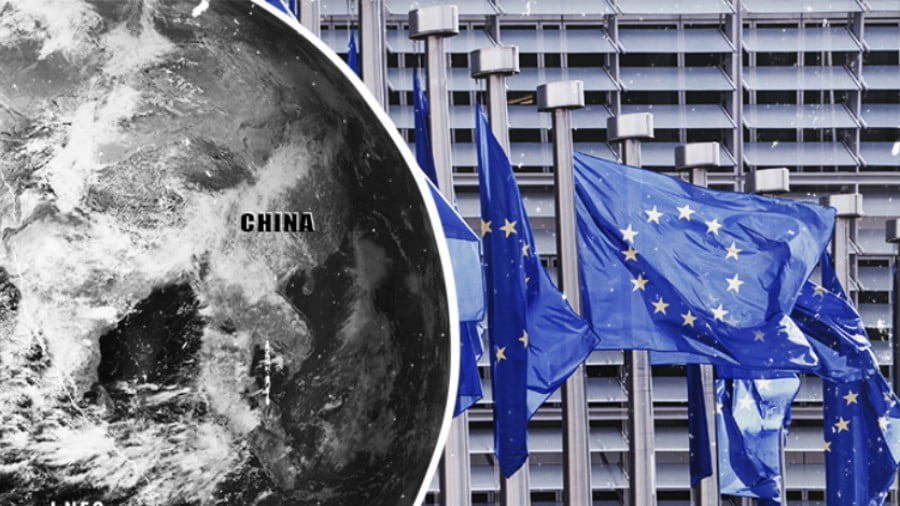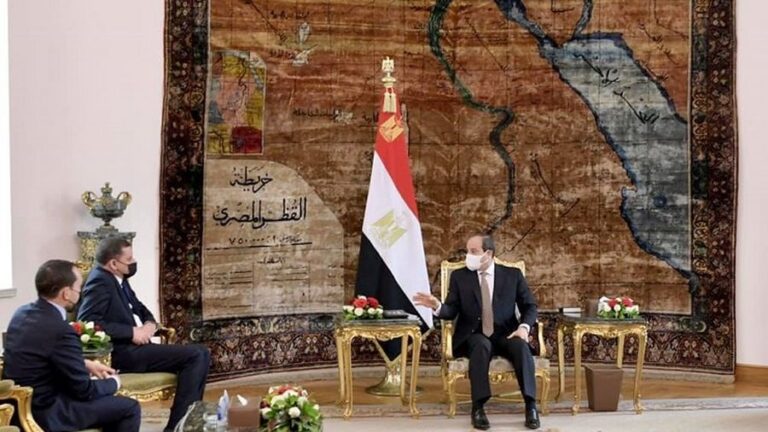Trump Puts Taliban Deal Back On Track
A mini mutiny in Kabul against the US-Taliban deal has been nipped in the bud and it should sound warning bells in Washington that the real threat to peacemaking in Afghanistan comes from one principal source — the interest groups that monopolise state agencies and are loathe to transfer power. Isolating the Kabul cliques amidst the country’s hopeless fragmentation becomes complicated and only the US can do it.
A powerful metaphor used by Peter Tomsen, President Ronald Reagan’s special envoy for Afghanistan during the jihad against the Soviets in the eighties, comes to mind. Ambassador Tomsen, despairing from his futile efforts to forge consensus among the squabbling Mujahideen groups (“Peshawar Seven”) even as the Soviet withdrawal was looming ahead said the whole exercise was turning out to be like a futile attempt to assemble frogs on a scale — when you put one, another already on the scale jumps out, and so on.
No sooner than the US-Taliban agreement was signed in Doha on February 29, Afghan President Ashraf Ghani jumped out of the scale where the US special representative for Afghan reconciliation Zalmay Khalilzad had put him after months of persuasion.
Ghani sprang a surprise by saying he refused to countenance the release of Taliban prisoners, a key demand of the Taliban during the Doha negotiations and something which was written in black and white in the document signed on Feb. 29 with his prior knowledge and concurrence.
In fact, Ghani had even dispatched officials from Kabul to Doha who met with the Taliban and had discussed the modalities of release of the prisoners. But then he changed his mind.
Ghani’s calculation was that his volte-face on the release of Taliban prisoners could be a deal breaker that would scuttle the intra-Afghan dialogue slated to begin on March 10.
Ghani was in a rebellious mood, goaded by hardliners in his clique, and he almost succeeded. The Taliban retaliated by ending the reduction in violence agreement. Fighting resumed and as can be expected, Afghan government forces, unable to withstand the Taliban onslaught, sought US air cover, which led to US air attacks on the insurgents.
The detractors of the US-Taliban deal abroad promptly began celebrating that the US and Taliban were once again clashing and the Doha pact was unraveling within three days of its signing.
However, in a bold initiative on February 3, Trump called Mullah Abdul Ghani Baradar, the de-facto Taliban leader who conducted the negotiations in Doha with Khalilzad and shored up the fragile mutual confidence between the two sides. It was a hugely symbolic move as well which sent a powerful signal to Kabul and it had the desired effect in real time.
Indeed, beyond the Doha pact, there is a matrix of mutual understanding that was painstakingly reached between the US and Taliban over months, with the strong back-up of Pakistan. Trump dwelt on it. (See my blog Afghan peace comes with caveats but can’t be snuffed out.)
From available accounts, Trump assured the Taliban that the US Secretary of State Mike Pompeo would intervene with Ghani and the prisoners will be released as the US had committed and that Washington expected the Taliban to continue to abide by the ‘reduction in violence’.
Trump has since publicly expressed the confidence that the violence will come down.
Quite obviously, Washington continues to place trust in the constructive role Pakistan has been playing, which has become pivotal in the peace process.
Looking back, this war of nerves is directly linked to Ghani’s aversion to the intra-Afghan dialogue, which he fears will inevitably lead to the formation of an interim government at some point in a near future necessitating his stepping down. The US is yet to congratulate Ghani on his recent victory in the rigged presidential election and has prevailed upon him to defer his swearing-in ceremony.
We have a curious line-up today — the (non-Taliban) Afghan opposition to Ghani and his clique looks forward to the inter-Afghan dialogue and reconciliation with the Taliban and is supportive of the US-Taliban deal and the peace process envisaged under it, while Ghani and his clique undermines the entire process that Khalilzad painstakingly negotiated.
Ghani is biding time and hopes to insert Afghan reconciliation as a controversial issue in the US presidential election campaign ahead, and hopes to get support from the Democrats who would be inclined to demand the centrality of human rights issues in any deal with the Taliban. But it is unlikely Trump will tolerate such political skulduggery on the part of Ghani.
Ghani is overreaching. The plain truth is that his regime has no popular support among Afghans and he still remains a creation of the Americans, which is why the international community all along learned to live with him.
His henchmen also have no political base. Ghani has no political base among Pashtuns. As for Amrullah Saleh, his main associate, he was originally picked up from nowhere and trained and groomed by the Americans as an intelligence officer, and although notionally a Panjshiri, he is no successor to Ahmed Shah Massoud. These are the stark realities, which are fairly well-known.
Clearly, the main threat to the Afghan peace process comes from the rejectionist Afghan faction of time-servers in the Ghani government. It is about time the Americans crack the whip and read the riot act to them.
An interview on March 2 by the US Secretary of State Mike Pompeo with Bret Baier of Special Report suggests that Washington is gearing up to do just that. Khalilzad is back in Kabul.
The good part is that the opposition to Ghani led by Abdullah is rallying behind the US-Taliban pact. So is former president Hamid Karzai. Khalilzad has met with Karzai, Abdullah Abdullah and other opposition leaders (erstwhile Northern Alliance resistance figures) on February 3, and they thrown their weight behind the US-Taliban pact.
Pompeo’s interview with Baier gives us a feel of what transpired during Trump’s phone conversation with Mullah Baradar. The US Defence Secretary Mark Esper since said on Monday that the drawdown of troops in Afghanistan will begin before March 10. For the present, things are back on track. As Pompeo put it,
“I met with them (Mullah Baradar) myself when I was in Doha. I looked them in the eye. They revalidated that commitment (to renounce al-Qaeda and reduce violence). Now they’ve got to execute it. Now we’ll be able to see, the world will be able to see, if they truly live up to that obligation. It’s important because that’s the reason we went there, Bret.”
The fact that Trump took time out amidst all the excitement over Super Tuesday to personally intervene with the Taliban leadership at the highest level underscores that this is one foreign-policy achievement of his administration to which he attaches the highest importance. And that is the best guarantee of its success too.
By M. K. Bhadrakumar
Source: Indian Punchline







